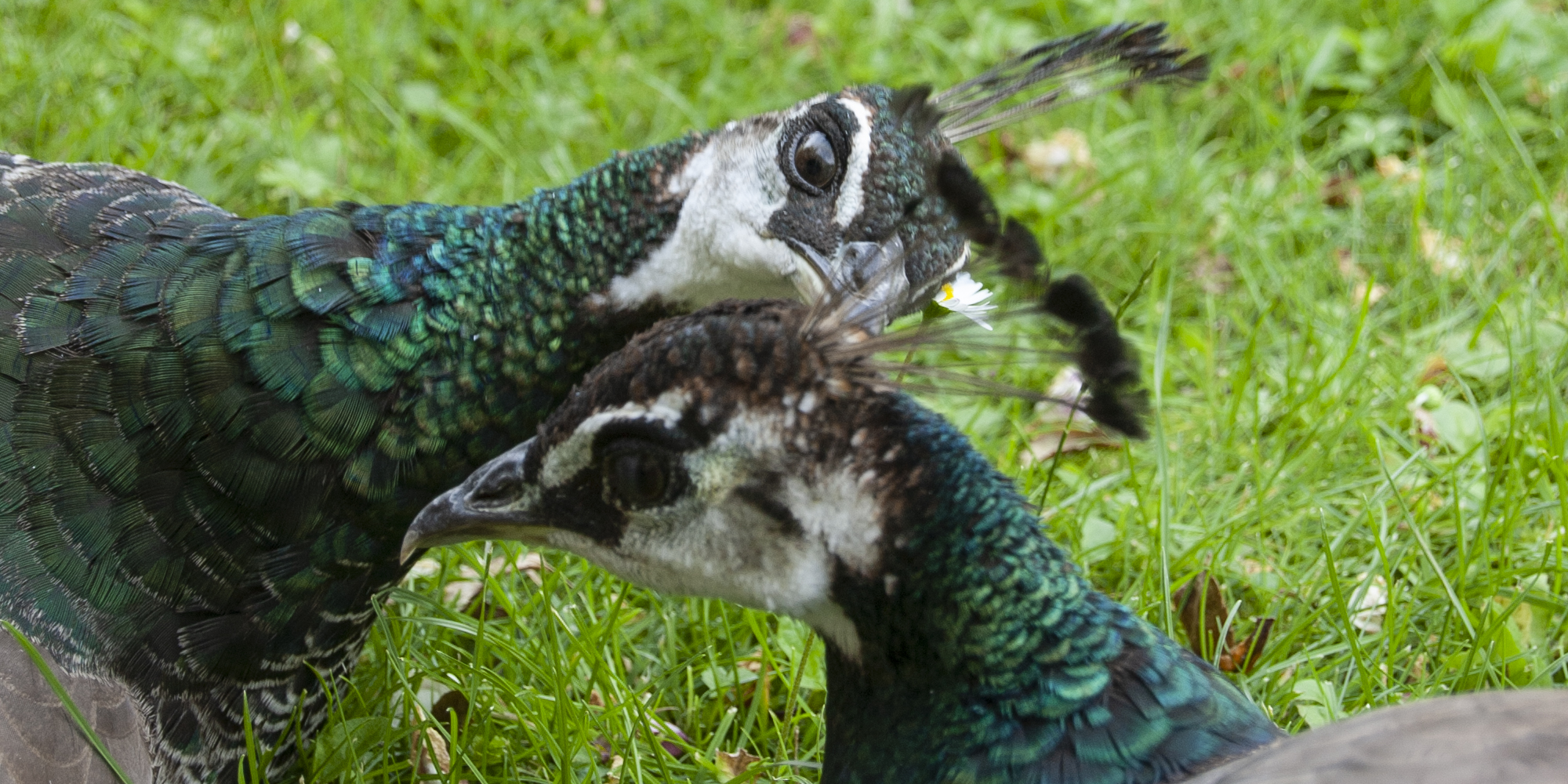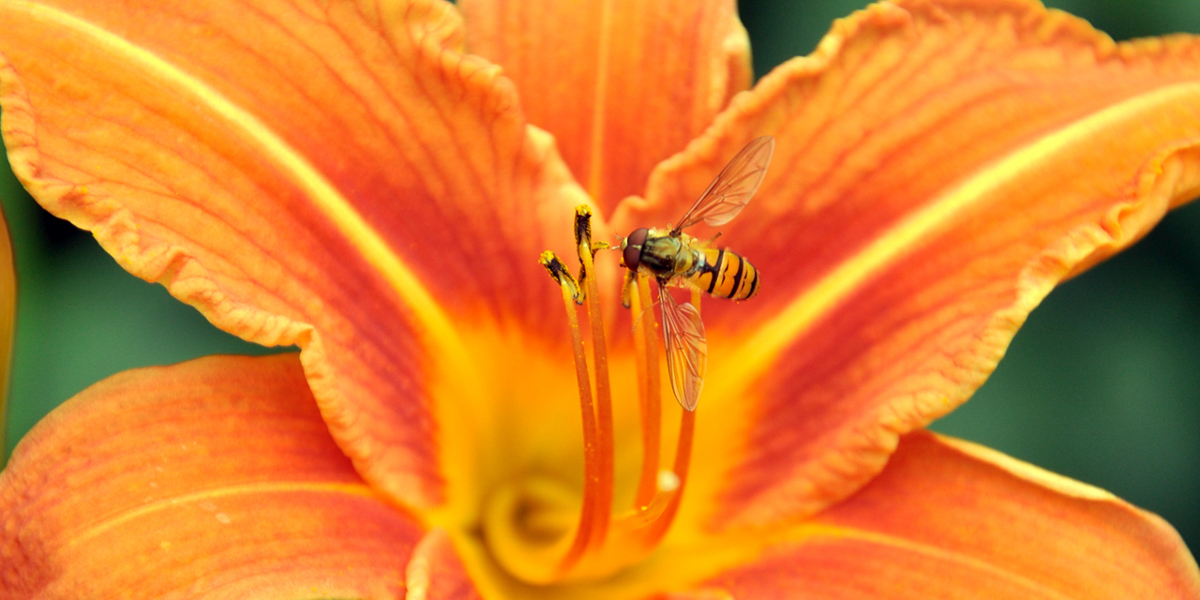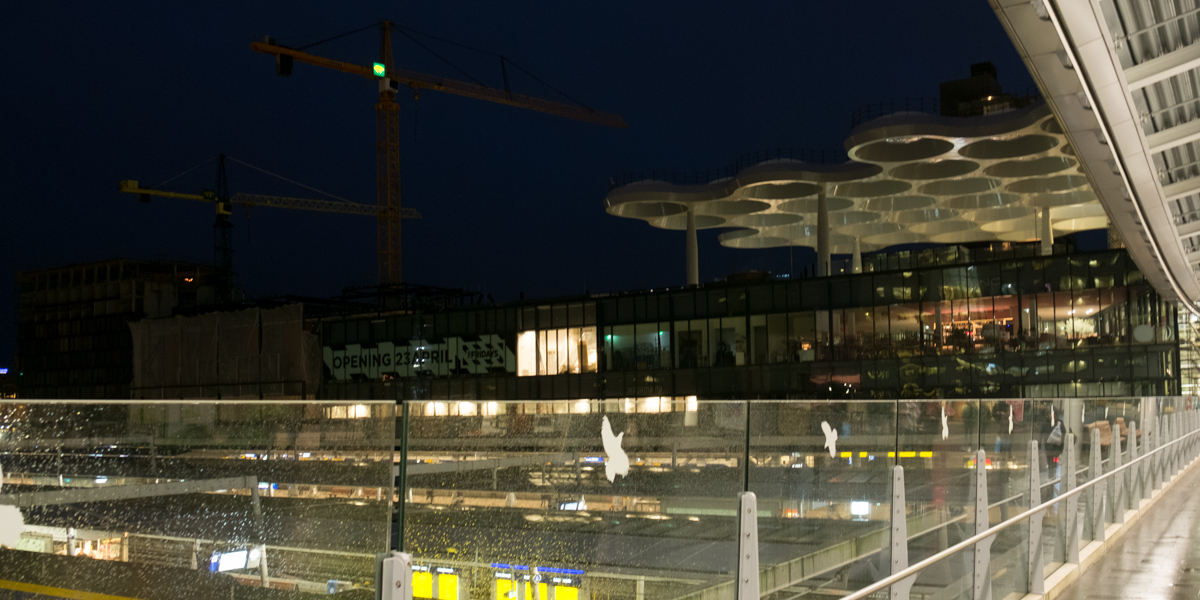Longread
During the winter months of 2020, I thought I had met the love of my life on a corona-times Tinder date. I’ll call her Yara. She is of non-Dutch origin, has an intriguing character, and is a good cook and baker. I didn’t express my opinions about the latter too strongly, hoping that she would cook more often soon. I also admired her exceptional and progressive intellectual qualities, and especially that she had just embarked on getting her PhD degree.
I saw a piece of myself in her. Or at least, the version of myself that others would have described about five years ago––assertive, passionate, constructive, systematic, and straightforward. She had a great passion for doing her PhD research, and I admired her willing sacrifices and structured routines. She told passionately about the functioning of the climate and the globe.
Her intellectual capabilities caught my attention.
Her life struggles had many similarities to the ones of my own childhood and youth, like skipping social events with the belief that there was a “higher” purpose elsewhere––perhaps replacing shortsighted, short-term reactions with careful overall considerations––high personal standards, a hunger for knowledge, and getting frustrated when witnessing injustice.
I liked her lively character. Maybe I also envied her and wanted to be doing my PhD again, with the knowledge I have now.
However, I also felt in her an intense pain that mirrored mine––an unbearable, frustrating perfectionism. Maybe I was projecting this. Based on the circumstances of her childhood and my rich inner world, I daydreamed endless scenarios.
She was taken care of by another family member, mainly her grandmother. I bet she must be a lovely and warm person. I imagined how Yara had grown up in an emotionally detached or literally broken family (through a divorce). Certain subjects were sensitive for her, and it was better to avoid them. I correlated this with some of her other behaviours. I suspected that she was still suffering from something in her past.
What a deep respect do I have for her grandmother!
Meanwhile, I noticed I was becoming afraid that I would express these thoughts and assumptions to her. I was worried about seeming like a freak or psychopath, and possibly robbing her of her feelings. I transferred some of my thoughts about her to myself, which made it impossible for me to behave normally. It seemed as if I could feel her intense pain as if it was happening to me. Instinct told me not to tell her this or even hint at it too much. Still, I was intrinsically driven to try to help her unravel whatever mysterious pain I imagined she was in.
I couldn’t pinpoint the exact causes of the struggles. Was it the anxiety about the amount of work to be done? The overwhelming strain one feels from living in the city––especially under coronavirus fears and restrictions? Was it perhaps the stress from taking in so much media? Internally, I also wrestled with a fundamental belief that I am not enough or loveable, a belief that creates constant emotional friction.
I hadn’t known Yara long enough for us to figure this out together, but she already knew that there was something wrong with me.
In the first hour of the first date, she saw the true me.
Her unique, lively smile was engraved in my memory. She was open-minded and wildly excited, talking about her past adventures. Meanwhile, her eyes had drawn my attention, and soon I felt something emotionally more resonant. When the moment feels right, hiding love-fueled emotions doesn’t work. Yet, my growing uncertainty already manifested itself at the end of the first date and the somewhat uncomfortable encounters that followed.
Mental illness boiling up
The intensity of my feelings got to the point where I no longer knew how to behave. I asked strange questions I would typically never ask, out of a misguided need to prove myself.
My heart raced, and my thoughts spun. I couldn’t concentrate. I stopped trusting my intuition. I felt I talked gibberish, told lies and left my own truth behind.
It went beyond the typical blunders of love; I was no longer myself.
I became mentally exhausted, and I was also out of breath faster and started to sweat more. These were clear signs of stress or anxiety that I tried to suppress. Consequently, they got worse. This manifested itself, for example, in many uncomfortable giggles from my side when in conversation with Yara.
I became insecure, irritable, and hypersensitive or even under-sensitive. In light of my previous relationships, this was new for me. Not that I became aggressive. On the contrary, I became passive and slow, tormented by clumsiness and inattention. Why was I withholding myself to act on her obvious signs of affection? I was masking my inner passion. Perhaps I was expressing myself in a way that was moulded by my biology, upbringing, and culture. Yet, my outward expressions did not reflect my inner world. I am sure that if my brain activity would have been scanned, it would “light up” like fireworks. Was this the real power of love?
My intuition became blocked.
Romantically, I was no longer myself. Clumsiness is present in almost any beginning phase of a new relationship. Still, I like to make love passionately and the clumsiness this time it was different. I acted wrongly.
What was wrong with me?
I wondered what was wrong with me. I was always devoting so much time to others but could not stand myself. Privately and professionally, I’ve typically been a man of everything. Evenings, weekends, and even nights were not sacred to me. I was often busy with colleagues, solving problems or dealing with other to-dos. My academic career was on track. I tend to maintain good relationships with colleagues and feel very comfortable in doing research. Socially and recreationally, I was also doing fine.
Before the coronavirus crisis, I hardly spent a single evening alone.
However, my work began to be driven by enormous pressure to perform. Instead of focusing on my own research five days a week, two days a week were soon occupied by educational duties. I supervised many students, provided some lectures, and assisted in tutorials. In addition, certain colleagues regularly needed something from me. This all added up to my active participation in many circles and associations. They all knew that when it came down to it, I couldn’t say no. Effectively, there were times I was only working one or two days per week on my own research, while the norm is four to five days.
At the same time, I had the feeling that completing my doctoral research was not a big deal. This was similar to how I approached my bachelors and masters studies. I always thought that I should put much more effort into all my work. For some reason, I do not.
When Yara put an end to my accumulation of blunders by not continuing our dating, I felt like being promoted to an academic level of social, emotional, and relational incompetence. Or, as written in The Sunday Times Best Seller The School of Life: An Emotional Education, “the appetites and destructive furies of primitive primates who have come into possession of thermonuclear warheads” (p.2). My dignity was severely affected.
My heart was almost irrevocably broken.
After visiting a counsellor, keeping a diary, meditating, and enjoying an extended vacation, I came to discover that I have been walking around with unprocessed events from my childhood and beyond. During the first five minutes of the visit to the counsellor, I became emotionally unstable. Tears ran from my eyes. I have never been able to process certain moments of my life properly and call them traumas.
What I saw as traumas were not dramatic lifetime moments, but relatively simple events. Events that could be described by a timestamp, activity, and perhaps some people involved. It was the accumulation of many minor events that I couldn’t process in my life. I simply did not feel heard back then, and I mostly saw myself as an outlier. I was raised in a safe and functional family. However, the way my parents were raised themselves got translated to me as well. Both my father and mother were raised without knowing their father. One of them passed away in an accident and the other by a terrible disease. Their difficulties with expressing emotions shaped their childhoods and have been taken over by me.
I was finally able to give the traces of events ruminating in my mind a place.
The coronavirus circumstances and this short-lived dating experience were the triggers that caused the bucket to overflow. I decided to surrender completely and deal with this as quickly and comprehensively as possible. Anything less would only be symptom control. I needed a salve for the deeper wounds.
With time, reading, more journaling, and counselling, many pieces of the puzzle fell into place. The insecurity and immense performance pressure built up in recent years had manifested itself in mental and physical ailments. My motto had been “always more and better”. My short-lived love story was the tipping point that showed me this was not a sustainable way to live.
I was lucky that Yara indirectly helped me see this.
Without experiencing that relationship, pushing me to seek help, I can imagine it turning out differently––perhaps leading to severe depression, or worse. She moves mountains, and she does it without a thought.
Giftedness
I had fallen into a trap and was operating under high pressure. Several people hinted at giftedness as a tentative diagnosis. Presumably, I was experiencing burnout, which appears to be common in people with giftedness.
A widely accepted definition of giftedness is the one used by the Columbus Group:
Giftedness is asynchronous development in which advanced cognitive abilities and heightened intensity combine to create inner experiences and awareness that are qualitatively different from the norm. This asynchrony increases with higher intellectual capacity.
I always thought that only geniuses like Albert Einstein, Isaac Newton, Leonardo da Vinci, or Louis Pasteur fit the definition of “gifted”. Yet asynchrony appears among all intelligence levels. In a nutshell, it means for me that I cannot easily turn off my thinking, am very sensitive to subtleties in life, emphatic, and easily annoyed by injustice. Other people also describe me as active, having strong morals and character, loyal, and social, while at the same time being very humble. My astronomic curiosity indicates that I live in pursuit of knowledge. It can almost seem that I am married to my vocation.
Framing my behaviour as “giftedness” gave me such a boost of self-awareness!
I searched for books, articles, and peers with similar conditions and discovered that I am not alone. It appears to be critical for many adults that this mental condition is recognized, so they don’t become stuck in life. Universities are a point of attraction for gifted people. What a great relief was this for me, now I can finally start living!
Isolation, perfectionism, underachievement, and depression are side effects of giftedness to be aware of. Giftedness appears to be partly determined genetically. One of my brothers was diagnosed as highly gifted during his childhood, but I was never tested. All my three brothers were also highly educated. By the way, being raised in a family with mostly men has undoubtedly contributed to my urge to perform. It is essential to be aware of how giftedness exhibits itself because it can facilitate intrapersonal learning to transform natural abilities into talents.
I recommend anyone with similar symptoms to read the book Journey Into Your Rainforest Mind: A Field Guide for Gifted Adults and Teens, Book Lovers, Overthinkers, Geeks, Sensitives, Brainiacs, Intuitives, Procrastinators, and Perfectionists by Paula Prober. This easy-to-read book was an eye-opener for me. It really touched me, mainly because of the recognition I experienced. Furthermore, the book gave me the courage to be an inquisitor and explorer and learn to comprehend myself in terms of success and failure. To ultimately reframe my journey of life. My intense curiosity may have killed the cat, but satisfaction brought it back.
Looking back at the corona Tinder date, one of the gifts I received was intense love and emphatic feelings. The burnout may have suppressed these feelings. Yet another phenomenon occurred, and I am sure that Yara would have a great laugh if she knew about it. To only reveal the veil’s tip, it is related to one of the drinks we had.
Gratitude and looking ahead
I want to make the best out of this and use these “gifts” to my advantage. Gifted people can exhibit extraordinary performance capabilities, possess a remarkable leadership capacity, or excel in their expertise areas. I’ve noticed that I can sometimes spot other gifted adults because of our symptoms and similarities. I am sure I’ve met at least a couple of others in my life with this condition and, incidentally, get along easily with all of them. I am also continuously building on improving my communication skills and am never giving up on my dreams––this is what Yara taught me.
I may be as sceptical about the future as anyone, but if taken one day at a time, I can use it to show the world what I am made of!
Meanwhile, I again joined the dating scene. Being aware of my capabilities gave me such a confidence boost. I look ahead under the guidance of a finer-tuned inner compass. The primitive primate has evolved!
Nevertheless, the extravagant gift Yara gave to me is one for which I am forever and unutterably grateful. I remain eternally thankful to her for helping me realize this. Yara, thanks for letting me grow as a person! You made me aware that there is more to life for. Properly communicating and being resilient is vital. You may not be aware of what intense power you have inside, but I know that you will rise.
Opportunistic and positive as I am, more roads are leading to Rome. New opportunities may arise, bringing mutual compassion, trust, and respect. I will propagate my missionary propositions of sustaining independence, while at the same time working on establishing an equal balance of power in relationships. To this end, the formation of compromises is essential. This will not be a simple quest, but a continuous process I am eager to be part of!
Thus, times have changed. My intuitive motives are fortified. Whatever is going to happen, I am looking forward to a fantastic future. I am back in control!
The immense happy prospective Curious Dr R.





WoW, zeer herkenbaar.
What a lovely story! Thanks for sharing.